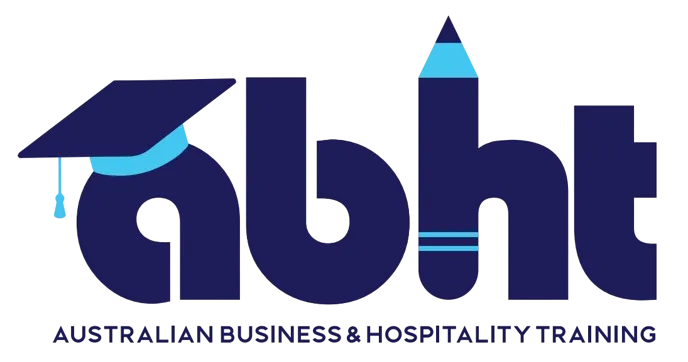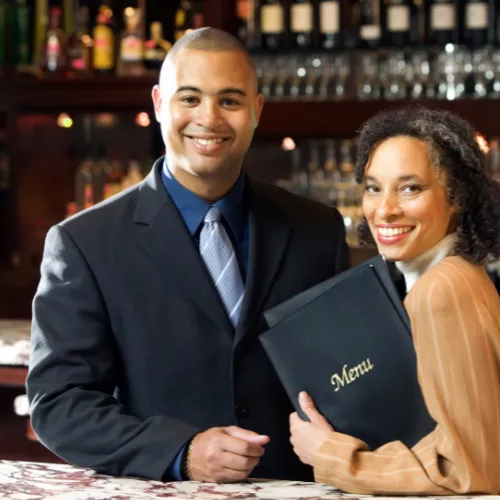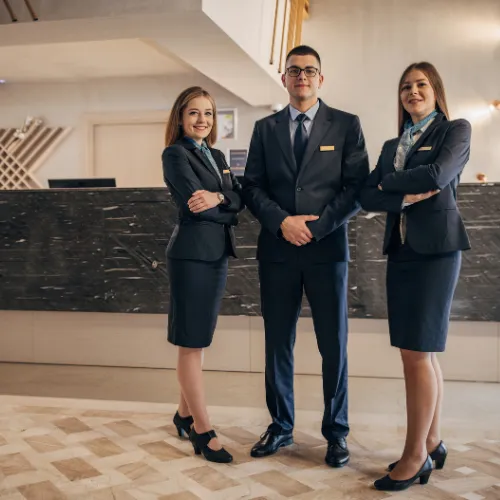SIT50422 - Diploma in Hospitality Management
Course Description
Dreaming of running the show in the world of hospitality? Our Diploma of Hospitality Management is your backstage pass to leading top-tier hotels, restaurants, resorts, and more! This course goes beyond the basics, giving you the skills to manage teams, control budgets, and keep operations running like a well-oiled machine.
You'll dive into everything from high-level customer service and staff leadership to marketing strategies and financial management. Whether you're aiming to be a restaurant manager, hotel supervisor, or even open your own venue, this diploma gives you the expertise to handle any hospitality challenge with confidence. If you're ready to go from front-of-house hero to behind-the-scenes mastermind, this is your ticket to a rewarding career where you call the shots!
What will you study?
This qualification covers 28 units, including business operations, financial management, staff leadership, and customer service excellence. You'll gain expertise in managing venues, coordinating events, ensuring compliance with industry regulations, and enhancing the guest experience—preparing you for management positions in hotels, restaurants, and other hospitality businesses.

Course Enrolment:
Anytime

Entry Requirements:
Nil

Course Duration:
12mths

Location:
ABHT are approved to deliver this course nationally via our online platform and can deliver this training face to face in the workplace throughout Metro & SE QLD.

Study Options:
Training can be delivered face to face in the workplace or in a traditional classroom environment. Students can also study within their own schedule using our online platform or combination of face-to-face and online training.
Diploma in Hospitality Management (Mainstream) Training Plan
Hospitality Industry Knowledge & Skills
SITHIND008 Work effectively in hospitality service
This unit describes the performance outcomes, skills and knowledge required to work effectively in a hospitality environment and provide service to customers during service periods. It requires the ability to integrate a range of individual technical skills while dealing with numerous sales, service or operational tasks simultaneously to meet the needs of multiple and diverse customers. A service period incorporates preparation, service and end of service tasks. The unit applies individuals working in a range of different departments such as accommodation services, food and beverage, gaming operations and housekeeping, in various hospitality industry settings, including bars, hotels, cafes, restaurants, clubs, pubs and motels. It applies to those frontline service personnel who deal directly with customers on a daily basis and who operate with some level of independence and under limited supervision. The skills in this unit must be applied in accordance with Commonwealth and State/Territory legislation, Australian/New Zealand standards and industry codes of practice.
SITHIND006 Source and use information on the hospitality industry
This unit describes the performance outcomes, skills and knowledge required to source and use current and emerging information on the hospitality industry. This includes industry structure, technology, laws and ethical issues specifically relevant to the hospitality industry. Hospitality personnel integrate this essential knowledge on a daily basis to work effectively in the industry.The unit applies to all hospitality sectors and people working at different levels. Managers will use more formal research to attain specialised and comprehensive knowledge to support product planning, marketing and strategic management activities. This is covered in other units of competency. This unit is not about having in-depth knowledge but focuses on the ability to source and interpret information relevant to day-to-day activities in order to maximise work performance. The skills in this unit must be applied in accordance with Commonwealth and State/Territory legislation, Australian/New Zealand standards and industry codes of practice.
Hospitality Operations
SITXMGT004 Monitor work operations
This unit describes the performance outcomes, skills and knowledge required to oversee and monitor the quality of day-to-day work. It requires the ability to communicate effectively with team members, plan and organise operational functions, and solve problems. The unit applies to all industry sectors, and to individuals operating at a team leading, supervisory or frontline management level.
SITXFIN009 Manage finances within a budget
This unit describes the performance outcomes, skills and knowledge required to take responsibility for budget management where others may have developed the budget. It requires the ability to interpret budgetary requirements, allocate resources, monitor actual income and expenditure, and report on budgetary deviations. The skills and knowledge for budget development are covered in SITXFIN010 Prepare and monitor budgets. This unit applies to all tourism, travel, hospitality and event sectors. The budget may be for an entire organisation, for a department or for a particular project or activity. It applies to those people who operate independently or with limited guidance from others. This includes supervisors and departmental managers.
BSBFIN401 Report on financial activity
This unit describes skills and knowledge required to prepare financial reports in line with statutory reporting requirements. This includes compiling and analysing financial data.
The unit applies to individuals employed in a range of work environments who are responsible for preparing financial reports. They may be individuals providing administrative support within an organisation, or they might have responsibility for these tasks in relation to their own workgroup or role.
SITXFIN010 Prepare and monitor budgets
This unit describes the performance outcomes, skills and knowledge required to analyse financial and other business information to prepare and monitor budgets. It requires the ability to draft and negotiate budgets, identify deviations, and manage the delivery of successful budgetary performance. The unit applies to all tourism, travel, hospitality and event sectors. The budget may be for an entire organisation, for a department or for a particular project or activity. It applies to senior personnel who operate independently or with limited guidance from others and who are responsible for making a range of financial management decisions.
SITXGLC002 Identify and manage legal risks and comply with law
This unit describes the performance outcomes, skills and knowledge required to identify and manage legal risks and comply with laws applicable to specific business operations. It requires the ability to identify legal risks, access and interpret regulatory information, and determine action required to manage legal risks and to comply with applicable laws. The unit applies to legal issues arising in day-to-day business operations in all tourism, travel, hospitality and event sectors. It applies to senior personnel who operate with limited guidance from others and who are responsible for making a range of operational business and legal risk management decisions.
SITTTVL001 Access and interpret product information
This unit describes the performance outcomes, skills and knowledge required to access product information about travel products to fulfil sales or operational needs. It requires the ability to identify sources of information and to interpret specific details of the products. The product can include international or domestic products sold by any travel organisation. The breadth and depth of product knowledge and its application will vary according to the industry sector, workplace and job role. This unit is not about having an in-depth knowledge of products, but focuses on the ability to source and interpret information. The unit mainly applies to frontline sales and operations personnel who operate with some level of independence and under limited supervision. It does, however, describe a fundamental operational function and those individuals who work with very little independence under close supervision would also use this skill. This includes travel consultants, inbound tour coordinators, reservations sales agents and owner-operators of small travel organisations.
SITEEVT023 Plan in-house events
This unit describes the performance outcomes, skills and knowledge required to plan the delivery of commercial events. It requires the ability to identify client operational needs and preferences, prepare and confirm event proposals, and finalise operational documents for the delivery of events. This unit is relevant to events that are diverse in nature and are coordinated in many industry contexts, including the tourism, hospitality, sport, cultural and community sectors. It applies to event coordinators who operate independently and are responsible for making a range of operational decisions. They may work in commercial event venues, such as hotels, clubs, theatres, and convention and exhibition centres.
SITXINV006* Receive, store and maintain stock
This unit describes the performance outcomes, skills and knowledge required to check and take delivery of stock and appropriately store, rotate and maintain the quality of stock items. It requires the ability to store perishable supplies in optimum conditions to minimise wastage and avoid food contamination. The unit is particularly important within a food safety regime and applies to hospitality and catering organisations, including hotels, restaurants, clubs, educational institutions, health establishments, defence forces, cafeterias, residential caterers, in flight and other transport caterers, event and function caterers. Personnel at many levels use this skill in the workplace during the course of their daily activities, including cooks, chefs, caterers, and kitchen attendants.
SITHGAM022 Provide responsible gambling services
This unit describes the performance outcomes, skills and knowledge required to provide responsible gambling services, and to assist those customers who may be at risk of or are already experiencing harm from gambling.Responsible gambling services must be provided wherever gambling activities are undertaken. In the hospitality industry, the gambling environment is usually referred to as the gaming area and is provided in a range of venues, such as hotels, motels, clubs, pubs and casinos. The major forms of gambling are wagering (racing and sport) and gaming (gaming machines, table games, Keno and lotteries). Both forms of gambling are relevant to the hospitality industry. Hospitality venues may operate Totalisator Agency Board (TAB) outlets for wagering on racing and sport events. They may also cover the full range of gaming activities, including operating gaming machines, table games, Keno and lotteries. Responsible provision of gambling services is an essential underpinning skill for all hospitality personnel involved in the sale and service of gambling activities in licensed premises, including the licensee, gaming supervisors and gaming managers when involved in operational gambling activities. The unit applies equally to frontline operational gambling personnel who operate with a limited level of autonomy and under some supervision and guidance from others. They would operate within predefined organisational procedures, and regulatory authority and industry and organisational codes of conduct.Those developing training to support this unit must consult the relevant state and territory gaming licensing authority to determine accreditation arrangements for courses, trainers and assessors. The unit also relates to satisfying the requirements for providing responsible gambling services under state and territory legislation. The terms used to describe this vary across state and territory regulatory bodies and can include Responsible Conduct of Gambling (RCG), Responsible Service of Gaming, or Responsible Service of Gambling (RSG).
Food and Beverage
SITHFAB021 Provide responsible service of alcohol
This unit describes the performance outcomes, skills and knowledge required to responsibly sell, serve or supply alcohol.Responsible practices must be undertaken wherever alcohol is sold, served or supplied, including where alcohol samples are served during on-site product tastings. This unit therefore applies to any workplace where alcohol is sold, served or supplied, including all types of hospitality venues, packaged liquor outlets and wineries, breweries and distilleries. The unit applies to all levels of personnel involved in the sale, service, including promotional service and supply of alcohol in licensed premises. Those selling or serving alcohol may include food and beverage attendants; packaged liquor salespersons selling in person, over the phone or online; winery, brewery and distillery cellar door staff; delivery services and supplier sales representatives. The unit also applies to security staff who monitor customer behaviour and to the licensee who is ultimately responsible for responsible service of alcohol (RSA) management. The unit incorporates the knowledge requirements, under state and territory liquor licensing law, for employees engaged in the sale, service or supply of alcohol. Certification requirements differ across states and territories. In some cases, all people involved in the sale, service including promotional service and supply of alcohol in licensed premises must be certified in this unit. This can include the licensee and security staff.This unit covers the RSA skill and knowledge requirements common to all States and Territories. Some legislative requirements and knowledge will differ across borders. In some cases, after completion of this unit, state and territory liquor authorities require candidates to complete a bridging course to address these specific differences.
SITHFAB023* Operate a bar
This unit describes the performance outcomes, skills and knowledge required to prepare a bar for service, take drink orders, prepare and serve alcoholic and non-alcoholic beverages and close the bar down. Customer service and selling skills are found in other units. The unit applies to any hospitality organisation that operates a bar, including hotels, restaurants, clubs, cafes, and wineries. The unit applies to bar attendants who operate with some level of independence and under limited supervision. The sale and service of alcohol is subject to the provisions of liquor legislation laws in each state and territory of Australia. Skills and knowledge for compliance with this law are covered by the prerequisite unit SITHFAB021 Provide responsible service of alcohol.
SITHFAB027* Serve food and beverage
This unit describes the performance outcomes, skills and knowledge required to serve food and beverages to customers in a casual dining setting. It covers the fundamental technical skills required to prepare the outlet for the service period, interact with customers to take orders, serve and clear food and beverage, and complete end of service tasks. Higher order service techniques required by senior food and beverage attendants are covered by the unit SITHFAB034 Provide table service of food and beverage. This unit applies to hospitality organisations that operate food and beverage outlets, including hotels, clubs, cafes and coffee shops.Beverages may include alcohol but as many casual dining settings do not serve alcohol it is not a requirement of this unit. The unit applies to operational food and beverage attendants who work with very little independence and under close supervision.
Food Safety
SITXFSA005 Use hygienic practices for food safety
This unit describes the performance outcomes, skills and knowledge required to use personal hygiene practices to prevent contamination of food that might cause food-borne illnesses. It requires the ability to follow predetermined organisational procedures and to identify and control food hazards. The unit applies to all organisations with permanent or temporary kitchen premises or smaller food preparation or bar areas. This includes restaurants, cafes, clubs, hotels, and bars; tour operators; attractions; function, event, exhibition and conference catering; educational institutions; aged care facilities; correctional centres; hospitals; defence forces; cafeterias, kiosks, canteens and fast food outlets; residential catering; in-flight and other transport catering. It applies to food handlers who directly handle food or food contact surfaces such as cutlery, plates and bowls during the course of their daily work activities. This includes cooks, chefs, caterers, kitchen stewards, kitchen hands, bar, and food and beverage attendants, and sometimes room attendants and front office staff. Food handlers must comply with the requirements contained within the Australia New Zealand Food Standards Code. In some States and Territories businesses are required to designate a food safety supervisor who is required to be certified as competent in this unit through a registered training organisation. Food safety legislative and knowledge requirements may differ across borders. Those developing training to support this unit must consult the relevant state or territory food safety authority to determine any accreditation arrangements for courses, trainers and assessors.
SITXFSA006 Participate in safe food handling practices
This unit describes the performance outcomes, skills and knowledge required to handle food safely during the storage, preparation, display, service and disposal of food. It requires the ability to follow predetermined procedures as outlined in a food safety program. The unit applies to all organisations with permanent or temporary kitchen premises or smaller food preparation areas. This includes restaurants, cafes, clubs, and hotels; tour operators; attractions; function, event, exhibition and conference catering; educational institutions; aged care facilities; correctional centres; hospitals; defence forces; cafeterias, kiosks, canteens and fast food outlets; residential catering; in-flight and other transport catering. Safe food handling practices are based on an organisation’s individual food safety program. The program would normally be based on the hazard analysis and critical control points (HACCP) method, but this unit can apply to other food safety systems. It applies to food handlers who directly handle food during the course of their daily work activities. This includes cooks, chefs, caterers, kitchen hands and food and beverage attendants. Food handlers must comply with the requirements contained within the Australia New Zealand Food Standards Code.
SITXFSA007* Transport and store food
This unit describes the performance outcomes, skills and knowledge required to transport food from a food preparation area to another location. It also deals with holding or storing food on arrival. The unit applies to food service operations where food is transported from the preparation area to another location and stored on arrival. This includes restaurants and cafes, educational institutions, aged care facilities, hospitals, defence forces, cafeterias and kiosks, residential catering, in-flight and other transport catering, events catering and private catering. It applies to food handlers who directly handle food when transporting and storing food. People at many levels use this skill in the workplace including cooks, chefs, caterers and catering assistants.The person transporting the food may or may not be driving the vehicle.
SITXFSA008* Develop and implement a food safety program
This unit describes the performance outcomes, skills and knowledge required to develop, implement and evaluate a food safety program for all stages in the food production process, including receipt, storage, preparation, service and disposal of food. It requires the ability to determine program requirements and prepare policies and procedures for other personnel to follow. The unit applies to all organisations with permanent or temporary kitchen premises or smaller food preparation areas. This includes restaurants, cafes, clubs, and hotels; tour operators; attractions; function, event, exhibition and conference catering; educational institutions; aged care facilities; correctional centres; hospitals; defence forces; cafeterias, kiosks, canteens, and fast food outlets; residential catering; in-flight and other transport catering. A food safety program would most commonly be based on the hazard analysis and critical control points (HACCP) method, but this unit can apply to other food safety systems. It applies to senior personnel who work independently and who are responsible for making strategic decisions on establishing and monitoring risk control systems for food related hazards. This could include chefs, kitchen managers, catering managers, fast food store managers and owner-operators of small business catering operations or retail food outlets. In some States and Territories businesses are required to designate a food safety supervisor who is required to be certified as competent in one or more designated units of competency through a registered training organisation.
Customer Service
SITXMGT005 Establish and conduct business relationships
This unit describes the performance outcomes, skills and knowledge required to establish and manage positive business relationships. It requires the ability to use high level communication and relationship building skills to conduct formal negotiations and make commercially significant business-to-business agreements. The unit applies to all industry sectors, and to individuals who take responsibility for making decisions about purchasing or marketing activities. They also oversee the maintenance of contracts or agreements. This could include senior operational personnel, sales and marketing personnel, managers or owner-operators of small businesses. Agreements may relate to corporate accounts, service contracts, agency agreements, venue contracts, rate negotiations, preferred product agreements, supply agreements and marketing agreements.
SITXCCS016 Develop and manage quality customer service practices
This unit describes the performance outcomes, skills and knowledge required to develop, monitor and adjust customer service practices. It requires the ability to consult with colleagues and customers, develop policies and procedures for quality service provision, and manage the delivery of customer service. The unit applies to senior managers who operate independently, have responsibility for others and are responsible for making a range of operational and strategic decisions. This includes individuals working in a range of tourism, travel, hospitality and event contexts and to any small, medium or large organisation.
SITXCCS015 Enhance customer service experiences
This unit describes the performance outcomes, skills and knowledge required to provide professional and personalised customer service experiences. It requires the ability to determine and meet customer preferences, develop customer relationships, respond to difficult service situations and take responsibility for resolving complaints. The unit applies to those who deal directly with customers on a daily basis and who operate independently or with limited guidance from others. It includes senior frontline sales personnel, supervisors and managers who use discretion and judgement to provide quality customer service experiences. This includes individuals working in a range of tourism, travel, hospitality and events contexts.
People & Culture
BSBTWK501 Lead diversity and inclusion
This unit describes the skills and knowledge required to lead diversity for a work area. It covers implementing the organisation’s diversity policy, fostering diversity within the work team and promoting the benefits of a diverse workplace. The unit applies to individuals who direct the work of others in teams of variable sizes. They may work with staff from different cultures, races, religions, generations, or other forms of difference in any industry context.
SITXHRM008 Roster staff
This unit describes the performance outcomes, skills and knowledge required to develop, administer and communicate staff rosters. It requires the ability to plan rosters according to industrial provisions, operational efficiency requirements, and within wage budgets. This unit applies to individuals responsible for developing staff rosters for situations involving potentially large numbers of staff working across a range of different service periods or shifts. It does not apply to small office environments. It applies to senior personnel who operate independently or with limited guidance from others, including dedicated specialist staff or operational supervisors and managers. The unit applies to all tourism, travel, hospitality and event sectors.
SITXHRM009 Lead and manage people
This unit describes the performance outcomes, skills and knowledge required to lead and manage people individually and in teams, and support and encourage their commitment to the organisation. It requires the ability to lead by example and manage performance through effective leadership. The unit applies to individuals who operate independently and are responsible for leading and motivating people and teams. This includes supervisors, and operational and senior managers.The unit applies to all tourism, travel, hospitality and event sectors.
SITXCOM010 Manage conflict
This unit describes the performance outcomes, skills and knowledge required to resolve complex or escalated complaints and disputes with internal and external customers and colleagues. It requires the ability to use effective conflict resolution techniques and communication skills to manage conflict and develop solutions. It does not cover formal negotiation, counselling or mediation. The unit applies to all tourism, travel, hospitality and event sectors. The unit applies mainly to senior operational personnel, supervisors and managers who operate with some level of independence and use discretion and judgement to resolve conflicts.
Work Health and Safety
BSBSUS511 Develop workplace policies and procedures for sustainability
This unit describes the skills and knowledge required to develop and implement workplace sustainability policies and to modify the policy to suit changed circumstances. The unit applies to individuals with managerial responsibilities who undertake work developing approaches to create, monitor and improve strategies and policies within workplaces. These individuals also engage with a range of relevant stakeholders and specialists. 'Sustainability' in this unit refers to a broad approach that focuses on the minimisation of an organisation’s social, economic and environmental impact, as well as proactive value creation in these areas.
SITXWHS006 Identify hazards, assess and control safety risks
This unit describes the performance outcomes, skills and knowledge required to identify hazards, assess the associated workplace safety risks, take measures to eliminate or minimise those risks, and document all processes. The unit applies to all tourism, travel, hospitality and event sectors and to any small, medium or large organisation. All people working at all levels can participate in risk assessments which are commonly conducted as a team effort. Frontline operational personnel, who operate with some level of independence and under limited supervision, would assist other colleagues during the process. Individuals may conduct the assessments independently of others. This unit incorporates the requirement, under state and territory work health and safety (WHS) legislation, for businesses to conduct risk assessments involving their workers to manage the safety of those workers and anyone else in the workplace.
SITXWHS007 Implement and monitor work health and safety practices
This unit describes the performance outcomes, skills and knowledge required to implement predetermined work health, safety and security practices designed, at management level, to ensure a safe workplace. It requires the ability to monitor safe work practices and coordinate consultative arrangements, risk assessments, work health and safety training, and the maintenance of records. The unit applies to all tourism, travel, hospitality and event sectors and to any small, medium or large organisation. It applies to those people who operate independently or with limited guidance from others. This includes supervisors and departmental managers. This unit incorporates the requirement, under state and territory work health and safety (WHS) legislation, for businesses to take a systematic approach to managing the safety of their workers and anyone else in the workplace.

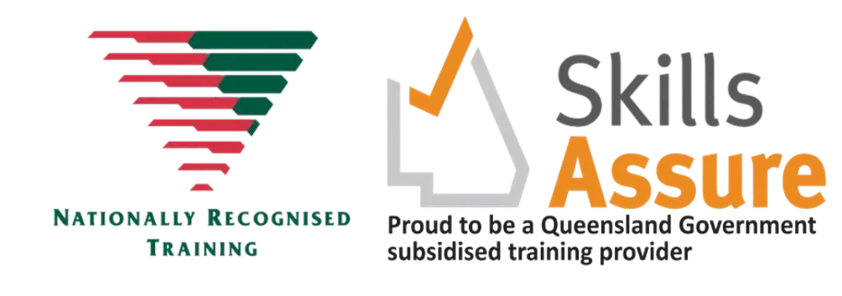
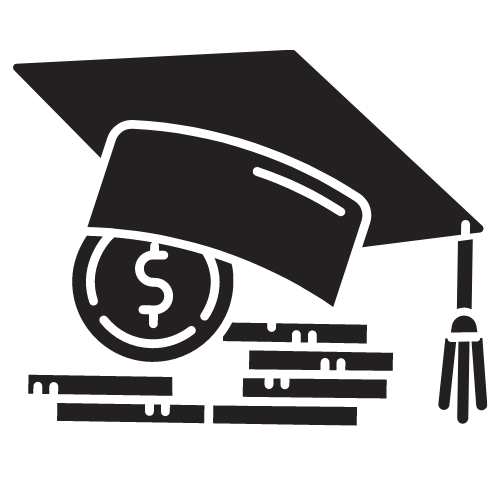
Course Fees:
There are two available enrolment options to choose from for this course:

Course Fees:
There are five available enrolment options to choose from for this course:
Career Boost - General Training
Career Boost aims to take a person’s career to the next level, enabling them to grow and apply their skills to existing or new job roles and to support productivity growth and
workplace innovation. The program delivers training to help
individuals develop the higher-level skills needed to secure employment, advance their careers, or progress to further
education and training to undertake.
Please Note: The funding provided by Queensland Government doesn't cover the full cost of training.
We are required to charge co-contribution fees for this course Fees are charged and collected at the Unit of Competency rate.
• Non-Concessional Fees: $1 per unit
• Concessional Fees: $0.70 per unit
The total co-contribution fees for the Diploma of Hospitality
Non-Concessional: $28.00
Concessional: $19.60
Fee for Service:
Diploma in Hospitality Management - $6440.00
Payment Structure for Courses over $1500.00
We make paying for your course simple and manageable.
Courses under $1,500: Pay upfront and in full at enrolment.
Courses over $1,500 A simple payment plan can arranged which will include a $1500 deposit on enrolment.
We also offer payment plans via Ezidebit direct debit, making it even easier to spread the cost of your course.
📌 Ezidebit terms, conditions, and fees apply. Full details will be provided during the enrolment process.
SIT50422 - Diploma in Hospitality Management
Course Description
Dreaming of running the show in the world of hospitality? Our Diploma of Hospitality Management is your backstage pass to leading top-tier hotels, restaurants, resorts, and more! This course goes beyond the basics, giving you the skills to manage teams, control budgets, and keep operations running like a well-oiled machine.
You'll dive into everything from high-level customer service and staff leadership to marketing strategies and financial management. Whether you're aiming to be a restaurant manager, hotel supervisor, or even open your own venue, this diploma gives you the expertise to handle any hospitality challenge with confidence. If you're ready to go from front-of-house hero to behind-the-scenes mastermind, this is your ticket to a rewarding career where you call the shots!
What will you study?
This qualification covers 28 units, including business operations, financial management, staff leadership, and customer service excellence. You'll gain expertise in managing venues, coordinating events, ensuring compliance with industry regulations, and enhancing the guest experience—preparing you for management positions in hotels, restaurants, and other hospitality businesses.

Course Enrolment:
Anytime

Entry Requirements:
Nil

Course Duration:
12mths

Location:
ABHT are approved to deliver this course nationally via our online platform and can deliver this training face to face in the workplace throughout Metro & SE QLD.

Study Options:
Training can be delivered face to face in the workplace or in a traditional classroom environment. Students can also study within their own schedule using our online platform or combination of face-to-face and online training.
Diploma in Hospitality Management (Mainstream) Training Plan
Hospitality Industry Knowledge & Skills
SITHIND008 Work effectively in hospitality service
This unit describes the performance outcomes, skills and knowledge required to work effectively in a hospitality environment and provide service to customers during service periods. It requires the ability to integrate a range of individual technical skills while dealing with numerous sales, service or operational tasks simultaneously to meet the needs of multiple and diverse customers. A service period incorporates preparation, service and end of service tasks. The unit applies individuals working in a range of different departments such as accommodation services, food and beverage, gaming operations and housekeeping, in various hospitality industry settings, including bars, hotels, cafes, restaurants, clubs, pubs and motels. It applies to those frontline service personnel who deal directly with customers on a daily basis and who operate with some level of independence and under limited supervision. The skills in this unit must be applied in accordance with Commonwealth and State/Territory legislation, Australian/New Zealand standards and industry codes of practice.
SITHIND006 Source and use information on the hospitality industry
This unit describes the performance outcomes, skills and knowledge required to source and use current and emerging information on the hospitality industry. This includes industry structure, technology, laws and ethical issues specifically relevant to the hospitality industry. Hospitality personnel integrate this essential knowledge on a daily basis to work effectively in the industry.The unit applies to all hospitality sectors and people working at different levels. Managers will use more formal research to attain specialised and comprehensive knowledge to support product planning, marketing and strategic management activities. This is covered in other units of competency. This unit is not about having in-depth knowledge but focuses on the ability to source and interpret information relevant to day-to-day activities in order to maximise work performance. The skills in this unit must be applied in accordance with Commonwealth and State/Territory legislation, Australian/New Zealand standards and industry codes of practice.
Hospitality Operations
SITXMGT004 Monitor work operations
This unit describes the performance outcomes, skills and knowledge required to oversee and monitor the quality of day-to-day work. It requires the ability to communicate effectively with team members, plan and organise operational functions, and solve problems. The unit applies to all industry sectors, and to individuals operating at a team leading, supervisory or frontline management level.
SITXFIN009 Manage finances within a budget
This unit describes the performance outcomes, skills and knowledge required to take responsibility for budget management where others may have developed the budget. It requires the ability to interpret budgetary requirements, allocate resources, monitor actual income and expenditure, and report on budgetary deviations. The skills and knowledge for budget development are covered in SITXFIN010 Prepare and monitor budgets. This unit applies to all tourism, travel, hospitality and event sectors. The budget may be for an entire organisation, for a department or for a particular project or activity. It applies to those people who operate independently or with limited guidance from others. This includes supervisors and departmental managers.
BSBFIN401 Report on financial activity
This unit describes skills and knowledge required to prepare financial reports in line with statutory reporting requirements. This includes compiling and analysing financial data.The unit applies to individuals employed in a range of work environments who are responsible for preparing financial reports. They may be individuals providing administrative support within an organisation, or they might have responsibility for these tasks in relation to their own workgroup or role.
SITXFIN010 Prepare and monitor budgets
This unit describes the performance outcomes, skills and knowledge required to analyse financial and other business information to prepare and monitor budgets. It requires the ability to draft and negotiate budgets, identify deviations, and manage the delivery of successful budgetary performance. The unit applies to all tourism, travel, hospitality and event sectors. The budget may be for an entire organisation, for a department or for a particular project or activity. It applies to senior personnel who operate independently or with limited guidance from others and who are responsible for making a range of financial management decisions.
SITXGLC002 Identify and manage legal risks and comply with law
This unit describes the performance outcomes, skills and knowledge required to identify and manage legal risks and comply with laws applicable to specific business operations. It requires the ability to identify legal risks, access and interpret regulatory information, and determine action required to manage legal risks and to comply with applicable laws. The unit applies to legal issues arising in day-to-day business operations in all tourism, travel, hospitality and event sectors. It applies to senior personnel who operate with limited guidance from others and who are responsible for making a range of operational business and legal risk management decisions.
SITTTVL001 Access and interpret product information
This unit describes the performance outcomes, skills and knowledge required to access product information about travel products to fulfil sales or operational needs. It requires the ability to identify sources of information and to interpret specific details of the products. The product can include international or domestic products sold by any travel organisation. The breadth and depth of product knowledge and its application will vary according to the industry sector, workplace and job role. This unit is not about having an in-depth knowledge of products, but focuses on the ability to source and interpret information. The unit mainly applies to frontline sales and operations personnel who operate with some level of independence and under limited supervision. It does, however, describe a fundamental operational function and those individuals who work with very little independence under close supervision would also use this skill. This includes travel consultants, inbound tour coordinators, reservations sales agents and owner-operators of small travel organisations.
SITEEVT023 Plan in-house events
This unit describes the performance outcomes, skills and knowledge required to plan the delivery of commercial events. It requires the ability to identify client operational needs and preferences, prepare and confirm event proposals, and finalise operational documents for the delivery of events. This unit is relevant to events that are diverse in nature and are coordinated in many industry contexts, including the tourism, hospitality, sport, cultural and community sectors. It applies to event coordinators who operate independently and are responsible for making a range of operational decisions. They may work in commercial event venues, such as hotels, clubs, theatres, and convention and exhibition centres.
SITXINV006* Receive, store and maintain stock
This unit describes the performance outcomes, skills and knowledge required to check and take delivery of stock and appropriately store, rotate and maintain the quality of stock items. It requires the ability to store perishable supplies in optimum conditions to minimise wastage and avoid food contamination. The unit is particularly important within a food safety regime and applies to hospitality and catering organisations, including hotels, restaurants, clubs, educational institutions, health establishments, defence forces, cafeterias, residential caterers, in flight and other transport caterers, event and function caterers. Personnel at many levels use this skill in the workplace during the course of their daily activities, including cooks, chefs, caterers, and kitchen attendants.
SITHGAM022 Provide responsible gambling services
This unit describes the performance outcomes, skills and knowledge required to provide responsible gambling services, and to assist those customers who may be at risk of or are already experiencing harm from gambling.Responsible gambling services must be provided wherever gambling activities are undertaken. In the hospitality industry, the gambling environment is usually referred to as the gaming area and is provided in a range of venues, such as hotels, motels, clubs, pubs and casinos. The major forms of gambling are wagering (racing and sport) and gaming (gaming machines, table games, Keno and lotteries). Both forms of gambling are relevant to the hospitality industry. Hospitality venues may operate Totalisator Agency Board (TAB) outlets for wagering on racing and sport events. They may also cover the full range of gaming activities, including operating gaming machines, table games, Keno and lotteries. Responsible provision of gambling services is an essential underpinning skill for all hospitality personnel involved in the sale and service of gambling activities in licensed premises, including the licensee, gaming supervisors and gaming managers when involved in operational gambling activities. The unit applies equally to frontline operational gambling personnel who operate with a limited level of autonomy and under some supervision and guidance from others. They would operate within predefined organisational procedures, and regulatory authority and industry and organisational codes of conduct.Those developing training to support this unit must consult the relevant state and territory gaming licensing authority to determine accreditation arrangements for courses, trainers and assessors. The unit also relates to satisfying the requirements for providing responsible gambling services under state and territory legislation. The terms used to describe this vary across state and territory regulatory bodies and can include Responsible Conduct of Gambling (RCG), Responsible Service of Gaming, or Responsible Service of Gambling (RSG).
Food and Beverage
SITHFAB021 Provide responsible service of alcohol
This unit describes the performance outcomes, skills and knowledge required to responsibly sell, serve or supply alcohol.Responsible practices must be undertaken wherever alcohol is sold, served or supplied, including where alcohol samples are served during on-site product tastings. This unit therefore applies to any workplace where alcohol is sold, served or supplied, including all types of hospitality venues, packaged liquor outlets and wineries, breweries and distilleries. The unit applies to all levels of personnel involved in the sale, service, including promotional service and supply of alcohol in licensed premises. Those selling or serving alcohol may include food and beverage attendants; packaged liquor salespersons selling in person, over the phone or online; winery, brewery and distillery cellar door staff; delivery services and supplier sales representatives. The unit also applies to security staff who monitor customer behaviour and to the licensee who is ultimately responsible for responsible service of alcohol (RSA) management. The unit incorporates the knowledge requirements, under state and territory liquor licensing law, for employees engaged in the sale, service or supply of alcohol. Certification requirements differ across states and territories. In some cases, all people involved in the sale, service including promotional service and supply of alcohol in licensed premises must be certified in this unit. This can include the licensee and security staff.This unit covers the RSA skill and knowledge requirements common to all States and Territories. Some legislative requirements and knowledge will differ across borders. In some cases, after completion of this unit, state and territory liquor authorities require candidates to complete a bridging course to address these specific differences.
SITHFAB023* Operate a bar
This unit describes the performance outcomes, skills and knowledge required to prepare a bar for service, take drink orders, prepare and serve alcoholic and non-alcoholic beverages and close the bar down. Customer service and selling skills are found in other units. The unit applies to any hospitality organisation that operates a bar, including hotels, restaurants, clubs, cafes, and wineries. The unit applies to bar attendants who operate with some level of independence and under limited supervision. The sale and service of alcohol is subject to the provisions of liquor legislation laws in each state and territory of Australia. Skills and knowledge for compliance with this law are covered by the prerequisite unit SITHFAB021 Provide responsible service of alcohol.
SITHFAB027* Serve food and beverage
This unit describes the performance outcomes, skills and knowledge required to serve food and beverages to customers in a casual dining setting. It covers the fundamental technical skills required to prepare the outlet for the service period, interact with customers to take orders, serve and clear food and beverage, and complete end of service tasks. Higher order service techniques required by senior food and beverage attendants are covered by the unit SITHFAB034 Provide table service of food and beverage. This unit applies to hospitality organisations that operate food and beverage outlets, including hotels, clubs, cafes and coffee shops.Beverages may include alcohol but as many casual dining settings do not serve alcohol it is not a requirement of this unit. The unit applies to operational food and beverage attendants who work with very little independence and under close supervision.
Food Safety
SITXFSA005 Use hygienic practices for food safety
This unit describes the performance outcomes, skills and knowledge required to use personal hygiene practices to prevent contamination of food that might cause food-borne illnesses. It requires the ability to follow predetermined organisational procedures and to identify and control food hazards. The unit applies to all organisations with permanent or temporary kitchen premises or smaller food preparation or bar areas. This includes restaurants, cafes, clubs, hotels, and bars; tour operators; attractions; function, event, exhibition and conference catering; educational institutions; aged care facilities; correctional centres; hospitals; defence forces; cafeterias, kiosks, canteens and fast food outlets; residential catering; in-flight and other transport catering. It applies to food handlers who directly handle food or food contact surfaces such as cutlery, plates and bowls during the course of their daily work activities. This includes cooks, chefs, caterers, kitchen stewards, kitchen hands, bar, and food and beverage attendants, and sometimes room attendants and front office staff. Food handlers must comply with the requirements contained within the Australia New Zealand Food Standards Code. In some States and Territories businesses are required to designate a food safety supervisor who is required to be certified as competent in this unit through a registered training organisation. Food safety legislative and knowledge requirements may differ across borders. Those developing training to support this unit must consult the relevant state or territory food safety authority to determine any accreditation arrangements for courses, trainers and assessors.
SITXFSA006 Participate in safe food handling practices
This unit describes the performance outcomes, skills and knowledge required to handle food safely during the storage, preparation, display, service and disposal of food. It requires the ability to follow predetermined procedures as outlined in a food safety program. The unit applies to all organisations with permanent or temporary kitchen premises or smaller food preparation areas. This includes restaurants, cafes, clubs, and hotels; tour operators; attractions; function, event, exhibition and conference catering; educational institutions; aged care facilities; correctional centres; hospitals; defence forces; cafeterias, kiosks, canteens and fast food outlets; residential catering; in-flight and other transport catering. Safe food handling practices are based on an organisation’s individual food safety program. The program would normally be based on the hazard analysis and critical control points (HACCP) method, but this unit can apply to other food safety systems. It applies to food handlers who directly handle food during the course of their daily work activities. This includes cooks, chefs, caterers, kitchen hands and food and beverage attendants. Food handlers must comply with the requirements contained within the Australia New Zealand Food Standards Code.
SITXFSA007* Transport and store food
This unit describes the performance outcomes, skills and knowledge required to transport food from a food preparation area to another location. It also deals with holding or storing food on arrival. The unit applies to food service operations where food is transported from the preparation area to another location and stored on arrival. This includes restaurants and cafes, educational institutions, aged care facilities, hospitals, defence forces, cafeterias and kiosks, residential catering, in-flight and other transport catering, events catering and private catering. It applies to food handlers who directly handle food when transporting and storing food. People at many levels use this skill in the workplace including cooks, chefs, caterers and catering assistants.The person transporting the food may or may not be driving the vehicle.
SITXFSA008* Develop and implement a food safety program
This unit describes the performance outcomes, skills and knowledge required to develop, implement and evaluate a food safety program for all stages in the food production process, including receipt, storage, preparation, service and disposal of food. It requires the ability to determine program requirements and prepare policies and procedures for other personnel to follow. The unit applies to all organisations with permanent or temporary kitchen premises or smaller food preparation areas. This includes restaurants, cafes, clubs, and hotels; tour operators; attractions; function, event, exhibition and conference catering; educational institutions; aged care facilities; correctional centres; hospitals; defence forces; cafeterias, kiosks, canteens, and fast food outlets; residential catering; in-flight and other transport catering. A food safety program would most commonly be based on the hazard analysis and critical control points (HACCP) method, but this unit can apply to other food safety systems. It applies to senior personnel who work independently and who are responsible for making strategic decisions on establishing and monitoring risk control systems for food related hazards. This could include chefs, kitchen managers, catering managers, fast food store managers and owner-operators of small business catering operations or retail food outlets. In some States and Territories businesses are required to designate a food safety supervisor who is required to be certified as competent in one or more designated units of competency through a registered training organisation.
Customer Service
SITXMGT005 Establish and conduct business relationships
This unit describes the performance outcomes, skills and knowledge required to establish and manage positive business relationships. It requires the ability to use high level communication and relationship building skills to conduct formal negotiations and make commercially significant business-to-business agreements. The unit applies to all industry sectors, and to individuals who take responsibility for making decisions about purchasing or marketing activities. They also oversee the maintenance of contracts or agreements. This could include senior operational personnel, sales and marketing personnel, managers or owner-operators of small businesses. Agreements may relate to corporate accounts, service contracts, agency agreements, venue contracts, rate negotiations, preferred product agreements, supply agreements and marketing agreements.
SITXCCS016 Develop and manage quality customer service practices
This unit describes the performance outcomes, skills and knowledge required to develop, monitor and adjust customer service practices. It requires the ability to consult with colleagues and customers, develop policies and procedures for quality service provision, and manage the delivery of customer service. The unit applies to senior managers who operate independently, have responsibility for others and are responsible for making a range of operational and strategic decisions. This includes individuals working in a range of tourism, travel, hospitality and event contexts and to any small, medium or large organisation.
SITXCCS015 Enhance customer service experiences
This unit describes the performance outcomes, skills and knowledge required to provide professional and personalised customer service experiences. It requires the ability to determine and meet customer preferences, develop customer relationships, respond to difficult service situations and take responsibility for resolving complaints. The unit applies to those who deal directly with customers on a daily basis and who operate independently or with limited guidance from others. It includes senior frontline sales personnel, supervisors and managers who use discretion and judgement to provide quality customer service experiences. This includes individuals working in a range of tourism, travel, hospitality and events contexts.
People & Culture
BSBTWK501 Lead diversity and inclusion
This unit describes the skills and knowledge required to lead diversity for a work area. It covers implementing the organisation’s diversity policy, fostering diversity within the work team and promoting the benefits of a diverse workplace. The unit applies to individuals who direct the work of others in teams of variable sizes. They may work with staff from different cultures, races, religions, generations, or other forms of difference in any industry context.
SITXHRM008 Roster staff
This unit describes the performance outcomes, skills and knowledge required to develop, administer and communicate staff rosters. It requires the ability to plan rosters according to industrial provisions, operational efficiency requirements, and within wage budgets. This unit applies to individuals responsible for developing staff rosters for situations involving potentially large numbers of staff working across a range of different service periods or shifts. It does not apply to small office environments. It applies to senior personnel who operate independently or with limited guidance from others, including dedicated specialist staff or operational supervisors and managers. The unit applies to all tourism, travel, hospitality and event sectors.
SITXHRM009 Lead and manage people
This unit describes the performance outcomes, skills and knowledge required to lead and manage people individually and in teams, and support and encourage their commitment to the organisation. It requires the ability to lead by example and manage performance through effective leadership. The unit applies to individuals who operate independently and are responsible for leading and motivating people and teams. This includes supervisors, and operational and senior managers.The unit applies to all tourism, travel, hospitality and event sectors.
SITXCOM010 Manage conflict
This unit describes the performance outcomes, skills and knowledge required to resolve complex or escalated complaints and disputes with internal and external customers and colleagues. It requires the ability to use effective conflict resolution techniques and communication skills to manage conflict and develop solutions. It does not cover formal negotiation, counselling or mediation. The unit applies to all tourism, travel, hospitality and event sectors. The unit applies mainly to senior operational personnel, supervisors and managers who operate with some level of independence and use discretion and judgement to resolve conflicts.
Work Health and Safety
BSBSUS511 Develop workplace policies and procedures for sustainability
This unit describes the skills and knowledge required to develop and implement workplace sustainability policies and to modify the policy to suit changed circumstances. The unit applies to individuals with managerial responsibilities who undertake work developing approaches to create, monitor and improve strategies and policies within workplaces. These individuals also engage with a range of relevant stakeholders and specialists. 'Sustainability' in this unit refers to a broad approach that focuses on the minimisation of an organisation’s social, economic and environmental impact, as well as proactive value creation in these areas.
SITXWHS006 Identify hazards, assess and control safety risks
This unit describes the performance outcomes, skills and knowledge required to identify hazards, assess the associated workplace safety risks, take measures to eliminate or minimise those risks, and document all processes. The unit applies to all tourism, travel, hospitality and event sectors and to any small, medium or large organisation. All people working at all levels can participate in risk assessments which are commonly conducted as a team effort. Frontline operational personnel, who operate with some level of independence and under limited supervision, would assist other colleagues during the process. Individuals may conduct the assessments independently of others. This unit incorporates the requirement, under state and territory work health and safety (WHS) legislation, for businesses to conduct risk assessments involving their workers to manage the safety of those workers and anyone else in the workplace.
SITXWHS007 Implement and monitor work health and safety practices
This unit describes the performance outcomes, skills and knowledge required to implement predetermined work health, safety and security practices designed, at management level, to ensure a safe workplace. It requires the ability to monitor safe work practices and coordinate consultative arrangements, risk assessments, work health and safety training, and the maintenance of records. The unit applies to all tourism, travel, hospitality and event sectors and to any small, medium or large organisation. It applies to those people who operate independently or with limited guidance from others. This includes supervisors and departmental managers. This unit incorporates the requirement, under state and territory work health and safety (WHS) legislation, for businesses to take a systematic approach to managing the safety of their workers and anyone else in the workplace.



Course Fees:
There are two available enrolment options to choose from for this course:
Career Boost - General Training
Career Boost aims to take a person’s career to the next level, enabling them to grow and apply their skills to existing or new job roles and to support productivity growth and
workplace innovation. The program delivers training to help
individuals develop the higher-level skills needed to secure employment, advance their careers, or progress to further
education and training to undertake.
Please Note: The funding provided by Queensland Government doesn't cover the full cost of training.
We are required to charge co-contribution fees for this course Fees are charged and collected at the Unit of Competency rate.
• Non-Concessional Fees: $1 per unit
• Concessional Fees: $0.70 per unit
The total co-contribution fees for the Diploma of Hospitality
Non-Concessional: $28.00
Concessional: $19.60
Fee for Service:
Diploma in Hospitality Management - $6440.00
Payment Structure for Courses over $1500.00
We make paying for your course simple and manageable.
Courses under $1,500: Pay upfront and in full at enrolment.
Courses over $1,500 A simple payment plan can arranged which will include a $1500 deposit on enrolment.
We also offer payment plans via Ezidebit direct debit, making it even easier to spread the cost of your course.
📌 Ezidebit terms, conditions, and fees apply. Full details will be provided during the enrolment process.
Career Pathway
Career Pathway
Graduates of the Diploma of Hospitality Management are equipped to oversee operations, lead teams, and drive business success in a range of hospitality settings. This qualification also opens doors to senior management opportunities or further study in business and hospitality leadership.
Graduates of the Diploma of Hospitality Management are equipped to oversee operations, lead teams, and drive business success in a range of hospitality settings. This qualification also opens doors to senior management opportunities or further study in business and hospitality leadership.
Ready to enrol?
Ready to enrol?
Register your interest
Fill in our expression of interest form here or call (07) 3117 9722
Eligibility Check
We will check your are eligible for Government funded training.
Enrolment Call
We call you to discuss your enrolment, eligibility for funding and training plan.
We will also confirm course costs and arrange payment or a payment plan
Online Enrolment Form
We will send you the link to our online enrolment, where you can upload your ID and submit all the details required.


Get in touch with us
Ready to connect with us?
We’re just a message away and can’t wait to hear from you!
Whether you have questions, need assistance, or just want to stay in touch, reach out and send us a message through our contact form, give us a call, or drop us an email. Our friendly team is here to help and make your experience awesome. So don’t be shy—let’s get the conversation started! 📞💌✨
Send us a message
More
Follow us
Contact Us
(07) 3117 9722
Level 2. 14 Smith Street
Mooloolaba QLD 4557
Monday to Friday
8.30am to 4.30pm
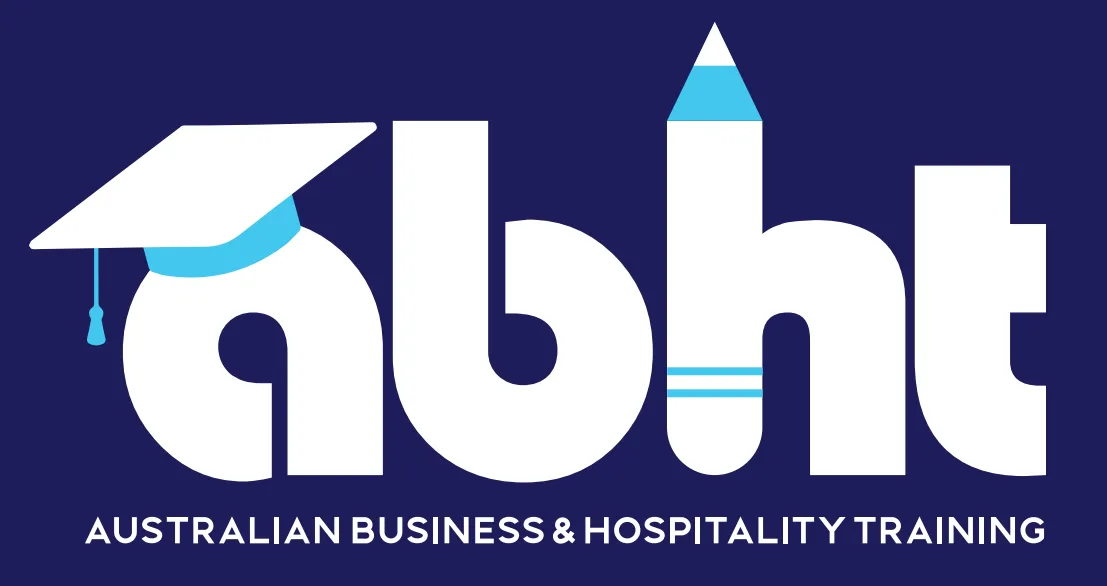
Acknowledgement of Country
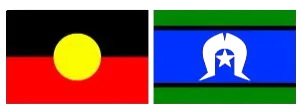
In the spirit of reconciliation ABHT acknowledges the Traditional Custodians of Country throughout Australia and their connections to land, sea and community.
We pay our respect to their Elders past and present and extend that respect to all Aboriginal and Torres Strait Islander peoples today.
© Copyright 2026. Australian Business & Hospitality Training. All rights reserved. RTO#31983
